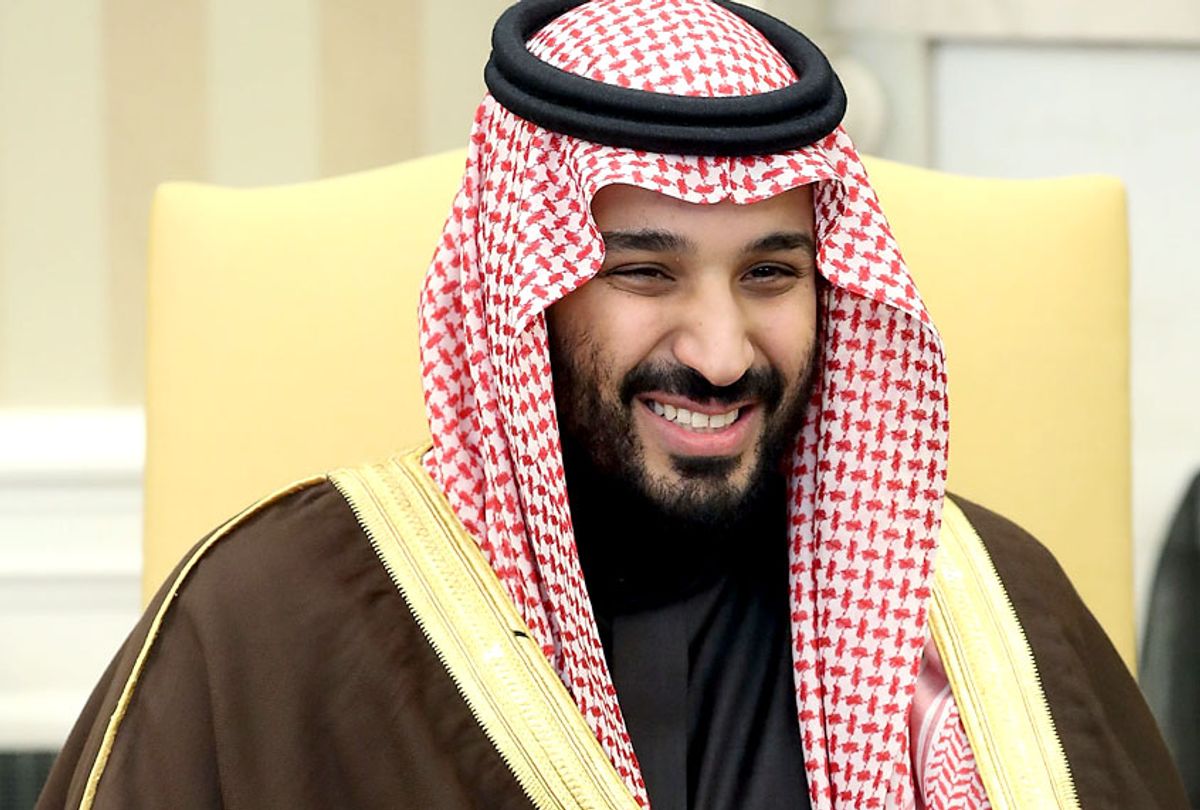Glenn Greenwald has described Washington Post columnist David Ignatius as an “all-but-official CIA media spokesman”; Adam Johnson of Fairness and Accuracy in Reporting (FAIR) criticizes Ignatius for “breathlessly updating U.S. readers on the token, meaningless public relations gestures that the Saudi regime — and, by extension, Ignatius — refer to as ‘reforms.’”
So Ignatius’ fascinating tale of intrigue, “The Khashoggi killing had roots in a cutthroat Saudi feud,” published Tuesday in the Post, is especially revelatory. Far from whitewashing the Saudi regime, Ignatius depicts the royal court as a cockpit of rage, corruption, and respectable gangsterism. If Ignatius’ reporting reflects the thinking of the CIA, his latest piece suggests the agency has turned on Crown Prince Mohammed bin Salman (MBS) in a significant way.
In his latest piece,Ignatius drops the trope of MBS as an “autocratic young leader in a hurry” in favor of diverse sources who depict the prince as vicious, violent, and deceptive. (One of those sources, it seems clear, is former CIA director John Brennan, who served as the agency’s station chief in Riyadh in the 1990s.)
After assuming power, Ignatius writes, MBS “became increasingly anxious and aggressive toward those he considered enemies. Starting in the spring of 2017, a team of Saudi intelligence operatives, under the control of the royal court, began organizing kidnappings of dissidents abroad and at home, according to U.S. and Saudi experts.”
The crime spree that followed included an attempt to deceive China’s Ministry of State Security to detain one of MBS’ rivals on bogus terrorism charges. When the ruse failed, MBS organized his own kidnapping operation.
"Rendition"
MBS ordered Saudi intelligence to do to “dissidents” what the CIA does to suspected terrorists: “rendition” them to “black sites.” Ignatius writes:
“Starting in the spring of 2017, the Saudis began a secret program for kidnapping dissidents and holding them at secret sites, according to knowledgeable U.S. and Saudi experts. The program involved a special ‘tiger team’ operating in tandem with the Center for Studies and Media Affairs at the royal court, headed by Qahtani.”
Qahtani is Saud al-Qahtani, an MBS associate whom Ignatius describes as “a lawyer and former Air Force member with a penchant for hacking and social media.” Ignatius’ story confirms that the crown prince’s operating style reeks of improvisational and brutal amateurism.
The operation to liquidate Washington Post journalist Jamal Khashoggi, a royal insider turned critic, was standard operating procedure for MBS.
In a closing passage, Ignatius summarizes the CIA case against the crown prince and his henchmen:
“The Saudi public prosecutor has arrested 18 Saudis in the case, including Maher Mutreb, a former intelligence officer and sometime bodyguard for MBS, who Saudi officials have charged was the leader of the team that murdered Khashoggi. Qahtani and [Gen. Ahmed al-]Assiri have both been fired from their jobs, and Qahtani is among 17 Saudis sanctioned by the U.S. Treasuryfor their alleged roles in the Post journalist’s death. The Treasury statement said that Qahtani ‘was part of the planning and execution of the operation’ and that Mutreb ‘coordinated and executed’ it.”
Reckless
In a phone interview, Ignatius told me he had personally learned something about MBS in reporting the story. Until Jamal Khashoggi vanished, the Post columnist wrote about the crown prince in a way that was balanced but always positive. In a 2016 profile of MBS, Ignatius said the young prince “could jumpstart the kingdom—or drive it off a cliff.”
Last summer he wrote, “I’m still rooting for MBS to succeed in reforming culture, religion and society in the biggest, most important Sunni Arab economy.”
“I think I got the two big issues right,” Ignatius told me. “I think the kingdom has to modernize, and MBS embraced modernization. I tried to get at the reckless side of his character, but I didn’t see it as clearly [then].”
"Fed u"
The conflict in Washington is subterranean but profound. The CIA, it seems, wants to wash its hands of the crown prince. President Trump, obviously, does not. Where does this end?
Ignatius told me that when Congress approved a bill in 2016 allowing the 9/11 families to sue members of the government in Riyadh, “the Saudis realized they had fewer friends in Washington than they thought.”
“People think the Saudis haven’t done enough to fight terrorism,” he went on. “They are fed up with Yemen. When Saudi Arabia is seen to do something that shocks people, there’s no reservoir of sympathy or support in Washington. And what happened to Khashoggi shocks the conscience.”
So now the White House, the Pentagon and the State Department are sticking with MBS, despite his crimes, for the sake of oil and arms deals.
The Congress, CIA and Treasury Department are backing away from their one-time ally in the name of rule of law, stopping the war in Yemen, and protecting their own reputations.
The much-vaunted U.S.-Saudi relationship is falling apart, and, as Ignatius shows, for very good reasons.



Shares